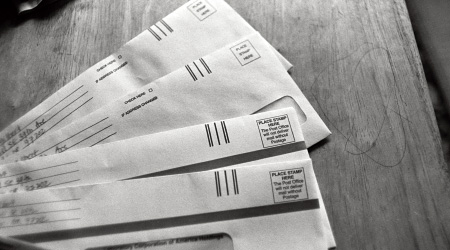Budgeting Household Finances

Managing personal finances is difficult but doing it for a household can seem like a insurmountable task for many families. Bills never seem to stop coming and request to buy this or buy that from children or loved ones add to the level of stress. For the person trying to make sure everyone gets paid at the end of the month it can be overwhelming. Poor decision-making and prioritization leads to an inability to pay bills effectively which will likely result in poor credit, default, charge-offs and for some families, bankruptcy. Budgeting household finances is a learned skill that takes practice and dedication to implement successfully.
It's almost impossible to create an effective budget without knowing exactly where money is coming from and going to. Make a complete list of all monthly bills and expenses and round the numbers up in increments of 10. It's better to overestimate expenses than underestimate and leave yourself unable to pay bills. Create a second list for all incoming funds such as paychecks, consistent odd jobs and supplemental income from the state or investments. Many families live paycheck to paycheck and it is possible that subtracting expenses from income will leave a zero or negative balance. If money is left over at the end of the month it should be used to pay down outstanding debt or deposited in to savings.
If finances are tight then a household budget should focus on eliminating wasteful sources of spending such as excessive entertainment or eating out all the time. A budget isn't about personal sacrifice and a lower quality of life but is instead about spending your money wisely and maximizing your return. Budgeting is about fulfilling short-term obligations while planning for long-term goals. Becoming debt-free or saving for a family vacation is something that won't happen overnight and will require keeping expenses in check for an extended period of time. The best way to budget is to payoff others while paying yourself. When you write checks to the mortgage company or the credit card, write a check to yourself and deposit it into a retirement fund or Caribbean vacation account.
Organization and allocation are the keys to successfully budgeting household finances. One of the many successful techniques is called the envelope budget. Using business envelopes labeled with monthly expenses and goals allocate a specific amount of money for each item. Some of these envelopes will be fixed expenses such as a mortgage or car payment but others will be variable such as food and utilities. By taking care of obligations first and lowering other expenses there should be money remaining at the end of the month to put in a couple of envelopes for retirement and vacation. If cash is really tight, some individuals will even sell their expensive car with high-priced insurance to get a used vehicle and liability only coverage. Try different methods to cut back on food such as using coupons and buy more fruits and vegetables in season or reducing utilities by conserving energy and water.
After a certain amount of time and dedication has been applied a successful budget will free up additional financial resources for the household leading to more stability. An important envelope to consider is for an emergency savings fund. It may take a year or more to get a household's finances under control and once that is done it is important not to backslide. Expecting the unexpected and planning for an emergency car repair or medical expense means having an emergency fund to cushion financial blows. As any investment advisor will tell you, it's important to make your money work for you and not the other way around.
Elsewhere on StockMonkeys.com







